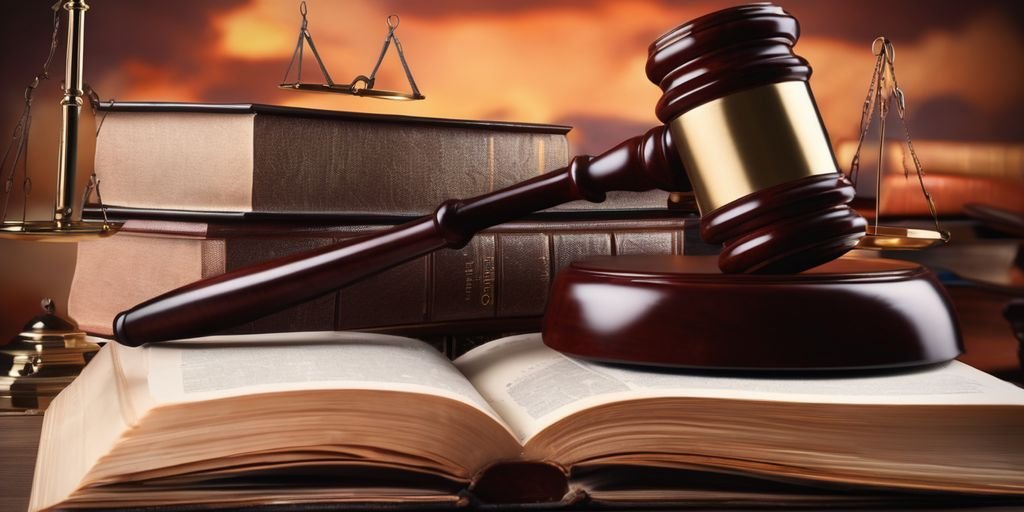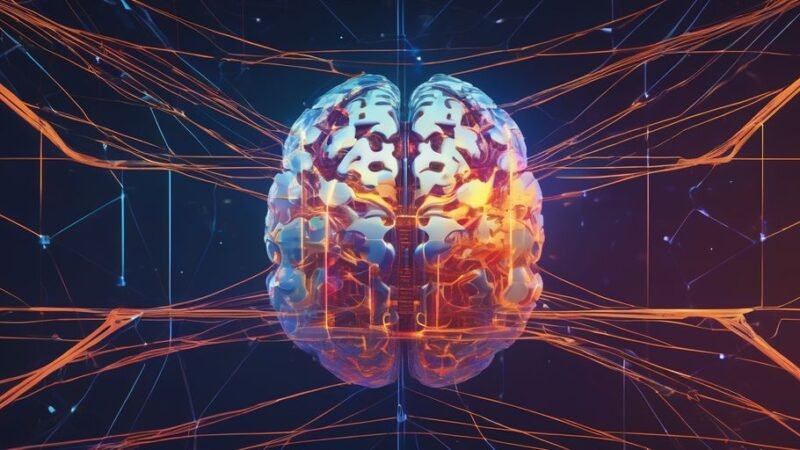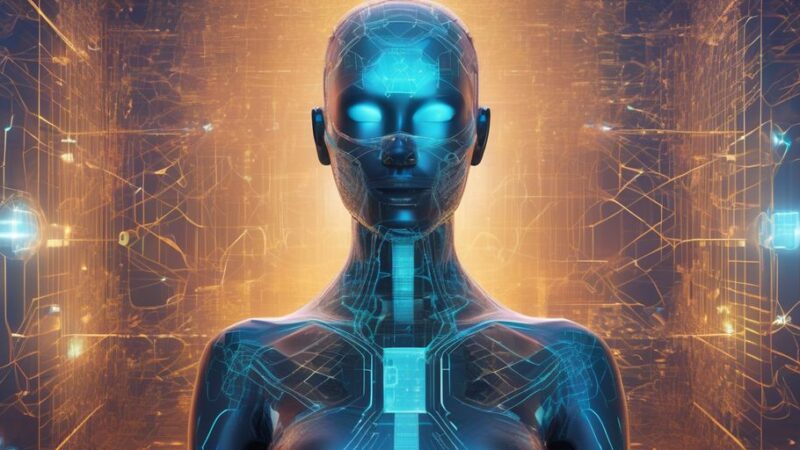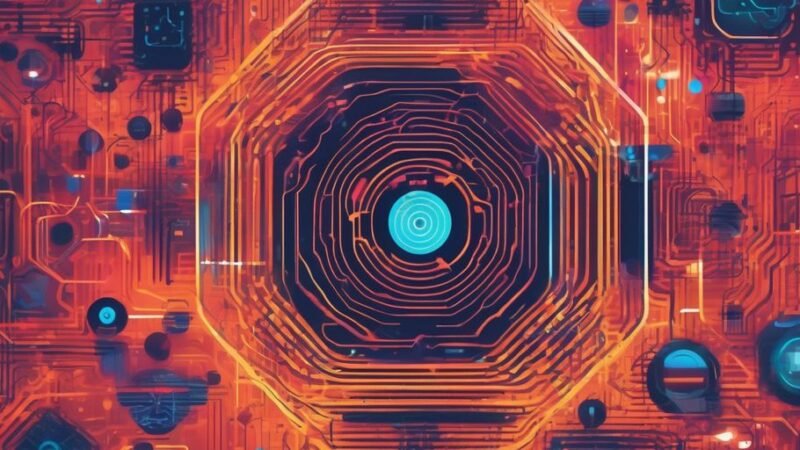Navigating the Legalities of AI Generated Nude Pics

The rise of artificial intelligence (AI) has introduced new complexities into the realm of adult entertainment, specifically regarding the legality of AI-generated nude pictures. As AI technology advances, it becomes capable of creating highly realistic images that can blur the lines between real and synthetic, raising significant legal, ethical, and societal concerns. This article explores the multifaceted legal landscape surrounding AI-generated nude pics, highlighting the need for clear regulations and informed consumer behavior.
Key Takeaways
- Understanding the legal framework is essential as AI-generated pornography straddles the line between innovation and infringement.
- Ethical considerations, particularly around consent and privacy, play a crucial role in shaping laws and societal norms.
- Copyright laws are challenged by AI creations, necessitating a reevaluation of ownership and originality in digital content.
- AI-generated content in revenge porn introduces complex legal challenges that require nuanced judicial interpretations.
- Technology companies and consumers must navigate evolving legal risks responsibly, staying informed of their rights and liabilities.
Understanding the Legal Framework for AI Generated Nude Pics
Defining AI-generated pornography
AI-generated pornography involves the use of artificial intelligence technologies, such as deep learning models, to create or alter images and videos that depict nudity or sexual acts. This technology can generate highly realistic content without human involvement in the creation process, raising significant legal questions.
Legal distinctions between real and synthetic images
The legal landscape differentiates between real images, which involve actual people, and synthetic images created by AI. Laws are still evolving to address the challenges posed by these synthetic creations, often focusing on issues of consent and the potential for harm.
Jurisdictional variations in law
Laws regarding AI-generated nude images vary significantly across different jurisdictions. Some regions may have strict regulations against the creation and distribution of such content, while others may allow it under certain conditions. It is crucial for creators and distributors to understand these variations to navigate the legal risks effectively.
The Ethical Implications of AI Generated Nude Pics
Consent issues in AI-generated content
Consent is a fundamental concern in the creation and distribution of AI-generated nude images. Unlike traditional adult content, where participants may give explicit consent, AI-generated images can be created without the knowledge or approval of the subjects. This raises significant ethical questions about the use of someone’s likeness without their permission.
The impact on societal norms
The proliferation of AI-generated nude pics can alter societal norms and perceptions of privacy and consent. As these images become ever more realistic, society must address the ethical and legal implications of such advancements, ensuring that individuals’ rights are protected.
Privacy concerns and data protection
AI-generated images not only challenge our notions of consent but also pose serious privacy concerns. The ability to create convincing nude images of individuals without their consent can lead to misuse, impacting the victim’s life profoundly. Effective data protection measures are crucial to prevent such abuses.
AI Generated Nude Pics and Copyright Law
Ownership rights over AI-created content
Ownership of AI-generated content, particularly nude images, remains a complex legal area. The primary question is who holds the copyright: the AI, the user, or the platform that generated the content? This issue is further complicated by the lack of explicit laws addressing AI-generated images.
Challenges in identifying original works
Identifying the originality of AI-generated nude pics poses significant challenges. Due to the advanced capabilities of AI, distinguishing between an original human-created work and an AI-generated one can be nearly impossible. This blurs the lines of copyright infringement and necessitates robust verification mechanisms.
Protecting the rights of digital creators
To ensure the rights of digital creators are upheld, it’s essential to implement protective measures. These might include:
- Establishing clear copyright policies specific to AI-generated content
- Utilizing digital watermarking to assert ownership
- Enforcing strict compliance with copyright laws
AI-generated nudes raise legal and ethical concerns, highlighting the need for updated legislation and education on responsible AI use for explicit content.
AI Generated Nude Pics in the Context of Revenge Porn
Legal challenges with non-consensual AI images
With AI technology, anyone can be a victim of nonconsensual porn, as it allows for the creation of nude photos and videos without the subject’s consent. This form of abuse, often intended to harm the victim, falls under the category of revenge porn. The legal landscape is still adapting to these challenges, where the distinction between real and synthetic images becomes blurred.
State-specific revenge porn laws
Different states have varying laws regarding revenge porn, which complicates the legal situation for AI-generated images. Some states may not yet recognize AI-generated images as equivalent to actual photographs, which can limit legal recourse for victims. It’s crucial for victims and legal professionals to understand the specific laws in their state to effectively navigate these cases.
Potential for civil litigation
Victims of AI-generated revenge porn may have the potential to pursue civil litigation against perpetrators. This legal avenue can provide compensation for damages and act as a deterrent against the misuse of AI technology in creating nonconsensual nude images. However, the success of such cases often depends on the ability to prove the intent and the harm caused by the AI-generated content.
The Role of Technology Companies in Regulating AI Generated Nude Pics
Responsibilities of platforms distributing AI content
Platforms distributing AI-generated nude pics have a critical role in ensuring ethical standards and legal compliance. They must implement robust detection systems to distinguish between AI-generated and human-created content. Additionally, terms of service should prohibit the use of real people’s images without consent and ensure prompt removal of non-consensual content.
Technological solutions to prevent abuse
To combat the misuse of AI in creating explicit content, technology companies can deploy advanced algorithms that screen for and remove images portraying minors or non-consensual acts. Ensuring that AI outputs are combined with large databases can help prevent the creation of identifiable images of real-life persons, thus protecting privacy and preventing abuse.
Collaboration with legal entities
Technology companies must work closely with legal entities to stay abreast of changing laws and ensure compliance. This collaboration can help in forming regulations that address the unique challenges posed by AI-generated content. By working together, they can create a safer digital environment and uphold the rights of all individuals involved.
Navigating Legal Risks as a Consumer of AI Generated Nude Pics
Understanding your rights
As a consumer of AI-generated nude pics, it is crucial to understand the legal landscape that governs these images. Knowing your rights can protect you from potential legal issues. It is advisable to familiarize yourself with the laws specific to your jurisdiction, as they can vary significantly.
Risks of engaging with AI-generated adult content
Engaging with AI-generated adult content carries certain risks, including potential legal ramifications if the content involves non-consensual images or violates copyright laws. Consumers should be cautious and ensure that the content they engage with is ethically sourced and complies with all applicable laws.
Legal recourse for affected individuals
If you find yourself adversely affected by AI-generated nude pics, there are legal recourses available. Victims can seek remedies through civil litigation or, in some cases, criminal prosecution. Consulting with a legal professional is highly recommended to navigate these complex issues effectively.
Future Legal Trends Concerning AI Generated Nude Pics
Predictions on evolving laws
As AI technology continues to advance, legal frameworks are expected to evolve to address the unique challenges posed by AI-generated nude imagery. Predictive models suggest a tightening of regulations, particularly around consent and the use of personal data in creating such content.
Impact of technological advancements on legislation
The rapid advancement of AI technologies will inevitably influence legislative changes. Lawmakers will need to balance innovation with ethical considerations and privacy protections. This could lead to new laws that specifically address the nuances of AI-generated content.
Global legal perspectives on AI-generated content
Different countries will likely develop varied legal responses to AI-generated nude pics, reflecting diverse cultural and legal norms. A comparative analysis shows that while some countries may impose strict bans, others might regulate the technology with less severity.
Conclusion
Navigating the legal landscape of AI-generated nude images presents a complex challenge that intertwines ethical considerations, privacy rights, and existing legal frameworks. As technology advances, the creation and distribution of such content must be meticulously scrutinized to ensure compliance with both national and international laws. Stakeholders, including creators, distributors, and consumers, must remain vigilant and seek legal counsel to navigate this evolving field responsibly. The potential for misuse, such as in cases of revenge porn, underscores the urgent need for clear legal definitions and robust protective measures to safeguard individuals’ rights and dignity in the digital age.
Frequently Asked Questions
What are the legal distinctions between real and synthetic AI-generated nude images?
Legal distinctions between real and synthetic images involve the authenticity of the image’s origin. Real images are direct depictions of individuals, whereas synthetic images are created by AI and may not involve real human subjects. The legality can vary based on jurisdiction and the perceived harm or consent of the depicted individual.
How do jurisdictional variations affect the legality of AI-generated nude pics?
Laws regarding AI-generated nude pics can vary significantly from one jurisdiction to another. Some regions may have strict regulations against creating or distributing such content, while others may allow it under specific conditions. It’s essential to understand local laws to navigate these variations effectively.
What are the ethical implications of consent in AI-generated adult content?
Consent in AI-generated content is a critical ethical issue, as it questions the integrity and autonomy of individuals represented by AI. Without clear consent from the people who are depicted or represented, creating such content can lead to ethical and legal repercussions, including privacy violations and potential harm to individuals’ reputations.
How does AI-generated nudity relate to copyright law?
Copyright law in the context of AI-generated nudity involves determining who holds ownership over the created content. Challenges arise in identifying original works and protecting the rights of digital creators, especially when AI algorithms autonomously generate content that may resemble existing copyrighted material.
What legal challenges arise with non-consensual AI-generated images in the context of revenge porn?
Non-consensual AI-generated images pose significant legal challenges, particularly in the realm of revenge porn. Victims may face difficulties in legal recourse due to the synthetic nature of the images, and laws may not fully address the nuances of AI-generated content, leading to potential gaps in protection.
What responsibilities do technology companies have in regulating AI-generated nude pics?
Technology companies play a crucial role in regulating AI-generated nude pics by implementing robust content moderation policies, developing technological solutions to prevent abuse, and collaborating with legal entities to ensure compliance with laws and protection of user rights.






